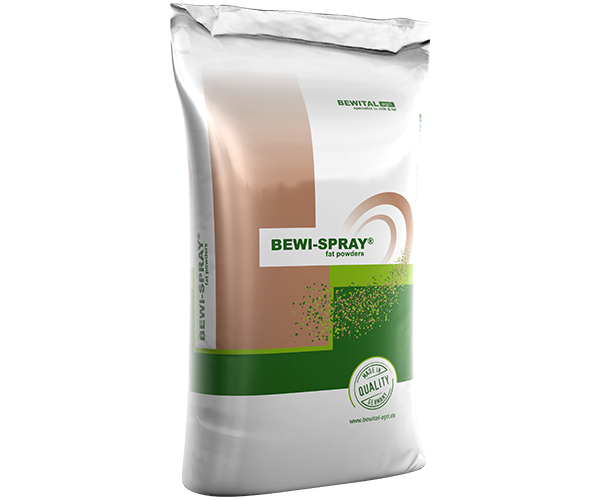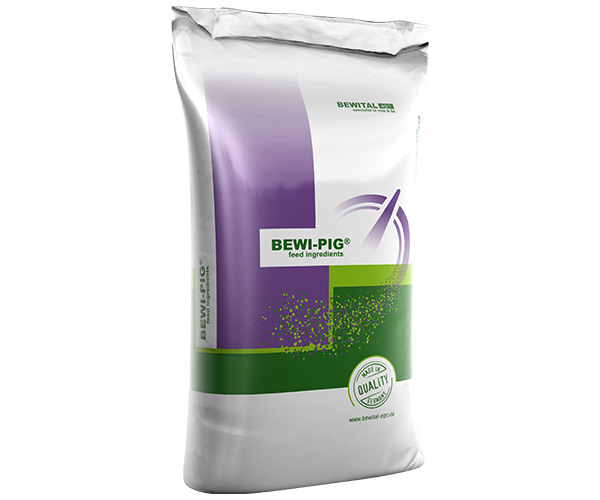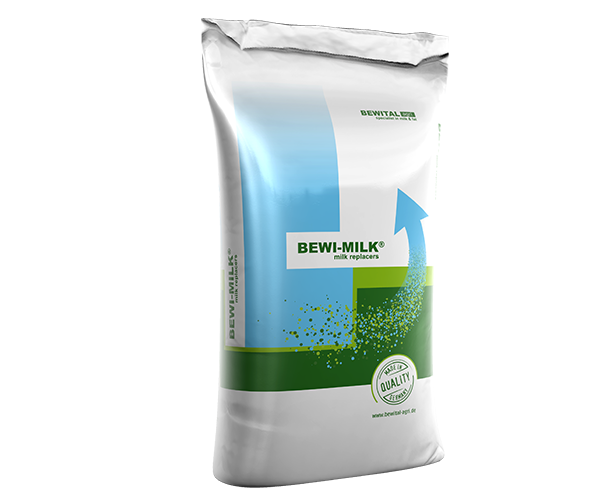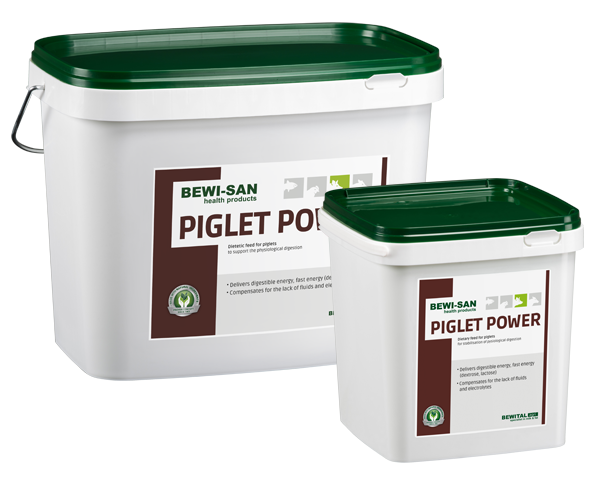High temperatures
lead to problems in pigs
Pigs are equipped with relatively few sweat glands and thus, experience heat periods quite early as they are not able to effectively dissipate warmth. A targeted approach is important to decrease the impact of heat as much as possible. Modifying the feeding regime therefor plays an important role.
Practical effects of heat stress in pig farms
One of the first observable signs of heat stress is a significant drop in feed intake. Pigs voluntarily reduce their feed intake at high temperatures in order to minimise the heat (thermal energy) generated by digestion. The consequences are performance losses across the board: Growing pigs show lower daily weight gain and longer fattening times as a result of reduced feed intake. Feed utilisation also deteriorates, as a greater proportion of the energy consumed is required for maintenance and cooling processes and is no longer available for growth or meat production. Heat stress therefore costs livestock farmers a measurable amount of production output.
Effects on sow fertility and piglets
Heat stress is particularly critical in breeding sows, as it affects not only the health of the dam but also the development of the piglets. Lactating sows in hot periods often find themselves in a state of energy deficit: due to reduced feed intake, they have to mobilise more body reserves (fat deposits) to produce milk. A high weight loss of the sow during the suckling period (over 20 kg) in turn has a negative effect on fertility.
In addition, heat stress leads to increased milk yield depression: Lactating sows produce less milk, which directly reduces the growth of the piglets. As a result, the weaned piglets are lighter and often generally weaker. In addition to the reproduction figures, the health of sows and piglets also suffers from heat stress. Due to the energy deficit and oxidative stress mentioned above, metabolic disorders and inflammatory diseases occur more frequently in sows. In general, piglets from heat-stressed sows are more susceptible to diarrhoea and growth depression, as they receive less milk and immune protection. In short, heat stress affects almost all performance and health parameters in pig production – from growth and feed conversion to reproduction, disease resistance and animal welfare.
Feeding against the energy gap
To avoid unnecessary warmth from metabolic processes, starch should partly be replaced by fat as an energy source (z.B. BEWI-SPRAY® 99 L oder BEWI-PIG® 80 L). By this, performance can be maintained on a high level. It is also important to always ensure a sufficient supply of hygienically safe drinking water.
An better performance can be realized by offering a high quality piglet milk replacer to the litter (e.g. BEWI-MILK® Piglet Premium). This also supplements the milk deficit of the sow.
Furthermore piglets can be offered additional electrolytes during heat conditions (e.g. BEWI-SAN Piglet Power), in order to regulate their energy and electrolyte balance. The result: piglets are more vital and healthy, contributing to a more efficient piglet rearing.
- Abbreviated, faster breathing
- Increased water intake
- Reduced feed intake
- Animals are laying outstretched on their side, on heat dissipating material if possible
Preventive measures to avoid heat stress:
- Optimised barn climate: ventilation, evaporative cooling or air conditioning can reduce the barn temperature.
- Drinking water quality and availability: Pigs must have access to fresh, cool water at all times.
- Feed customisation: Rations rich in energy and nutrients with a lower heat load can be helpful. Shift feeding times to the early morning and late evening hours
- Housing management: Cooling zones, e.g. through wet lying areas or spraying systems, increase animal welfare.
Our solutions for sows:
- High energy component contains lecithin
- guaranteed highest digestibility
- based on palm oil or rapeseed oil
- Combination product with high quality sweet whey, refined vegetable fats and lecithin
- with midchain fatty acids

>> more information

>> more information
Our solutions for piglets:
- Premium milk replacer for supplementation of sow milk
- with lactic acid bacteria for the stabilization of the intestinal flora
- for vital and good growing piglets
- Dietary feed supplement offers easily digestible, direct available energy (dextrose, lactose)
- facilitates the electrolyte balance
- ideal supplement for additional fluid intake

>> more information

>> more information
Here's something else that may interest you:
-
Heat? Adjust feeding!

It is well known that at high ambient temperature it is quite difficult to get enough energy in lactating sows. However, with an adapted feeding strategy, sufficient energy intake can be ensured even in summer, when temperatures are high.
learn more -
How to support the metabolism of pigs holistically – even during hot periods

Pigs are particularly sensitive to heat due to their physiology. As a result, there is a risk of heat stress - a condition that is associated with a variety of negative consequences for the metabolism, health and performance of the animals.
learn more -
Feeding trial confirmed: BEWITAL agri fat powders are highly digestible

Fats play an important role in animal nutrition. They serve as an energy carrier, storage medium, construction of membranes, absorption, synthesis and transport of hormones and vitamins. Fat is the feed component with highest energy density in animal feed.
learn more